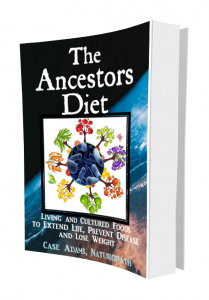Hepatitis Conditions Respond to Nutritional Therapy
A number of studies over the past year have confirmed that hepatitis responds positively to nutritional supplementation, plant-based nutrients, a balanced diet, and changes in protein and energy consumption.
In this article
What is hepatitis?
Hepatitis describes an inflammatory liver disease that includes swelling and often death. It can be caused by a number of toxins, including alcohol, pharmaceuticals such as acetaminophen, and infections by viruses, bacteria or parasites.
Cirrhosis is often accompanied by hepatitis, caused primarily by excessive alcohol consumption.
Besides alcohol-related cirrhosis, one of the leading causes of hepatitis around the world is hepatitis C. Hepatitis C (HCV) is a blood-borne viral infection communicated through either sexual contact, the sharing of needles, blood transfusion or even from mother to child. The virus is thought to infect about 170 million people around the world, and is growing in many regions and among many communities.
Yet not everyone exposed to the HCV virus will have a significantly negative outcome. Many infections are considered benign or non-lethal, and often do not result in observable symptoms. Others can develop liver cirrhosis and even liver cancer as a result of a hepatitis C viral infection. Why is HCV benign in many while it can be so lethal in others?
What makes the difference between severe cases of hepatitis C and benign cases? How about severe cases of other forms of hepatitis?
Scientists link hepatitis expansion to oxidative stress
Research from Taiwan’s Hungkuang University may have found the key relationship. They discovered, in a study of sixty human patients with a chronic, more severe form of hepatitis C, that higher levels of oxidative stress and higher levels of ferritin exist among those with severe forms of hepatitis C.
Other research has confirmed that higher levels of oxidative stress are associated with poor diets, a lack of exercise, alcohol, smoking, and emotional and work-related stress.
As for higher levels of ferritin, this is one of the body’s protective measures to help reduce oxidative stress, as well as help stem the hepatitis virus’ binding to iron from within the liver and other tissues. Ferritin is produced by the body to bind free iron and prevent the circulation of too much free iron. Free iron can be toxic to the body and will often bind during oxidative reactions to produce increased inflammation.
As such, ferritin increases have also been seen among other inflammatory conditions and various infections.
The Hungkuang University researchers found that those with chronic hepatitis C conditions had significantly higher ferritin levels as well as higher oxidative stress levels. Oxidative stress is produced by an overload of oxidative radicals. Oxidative radicals “steal” electrons from molecules among cells of the body, creating damage among the body’s tissues.
One of the measures of oxidative stress is the TBARS test, which stands for thiobarbituric acid reactive substances. This tests the response of a substance against thiobarbituric acid. The Hungkuang University researchers established that TBARS levels were significantly higher amongst the more severe, chronic cases of hepatitis C.
Other plant-based nutrients and hepatitis
A significant amount of research has established that plant-based nutrients such as flavonoids, catchins, gallates, cyanidins and others neutralize and reduce this type of oxidative stress in the body. They do this by lending electrons to oxidative radicals, thus neutralizing their effect. Anthocyanins from blueberries and other dark colored fruit have shown significant effects in reducing oxidative stress, as have so many other phytonutrients.
Research has also established that increased alcohol consumption is linked to higher TBAR levels, and of course, alcohol consumption is also the leading cause of hepatitis.
In a recent review of research from the Canadian Journal of Gastroenterology, researchers established among seven studies that included 262 liver disease patients. The research found that a balanced diet in addition to nutritional supplements resulted in lower levels of hepatic encephalopathy among the patients. The researchers also found that supplementation reduced hepatitis mortality, but only slightly, by 20% – which was deemed by the researchers as not significant.
What about protein consumption?
Meanwhile, research on patients with chronic hepatitis C from the Medical College of Brazil’s Federal University of Bahia studied the effect of two different types of protein consumption. The researchers divided 160 chronic hepatitis C patients into two groups of 80 patients. Both groups (controlled and randomized) were given 32 grams of protein per day for twelve weeks. In one group the form of protein was casein-based (animal protein) while the other group’s protein source was soy-based.
The group eating the soy protein had significantly lower ALT levels (liver enzymes that reveal liver inflammation). The soy protein group also had lower HDL levels and higher glutamyl transferase levels. The researchers calculated that these changes indicated that in just twelve weeks of soy-protein consumption, the chronic hepatitis C patients had reduced their risk of developing fatty liver disease (cirrhosis or hepatic steatosis) by 75%.
Those are darn good results. The researchers, most of whom are medical doctors, concluded: “Soy supplementation decreased ALT levels and thus may improve liver inflammation in hepatitis C virus (HCV) patients.” They also stated that soy protein treatment “should be considered in the nutritional care of HCV patients.”
In another 2012 study, medical researchers from Fukuoka University have determined that the excessive consumption of protein and sugar/carbohydrate foods is linked with a greater risk of severe hepatitis C complications. The researchers studied 47 patients with HCV-linked cirrhosis, 46 chronic hepatitis C patients and 32 healthy human volunteers. They found that only 10% of the severe and chronic hepatitis patients were consuming within a healthy range of protein and energy (sugar/carbohydrates) in their diets. The rest of the HCV patients were consuming either excessive levels or not enough – to the extent of malnourishment. More than 72% of the HCV patients were consuming excessive levels of protein and sugar/carbohydrates, which 17% were malnourished. Furthermore, the patients with HCV-related cirrhosis had the greatest consumption of protein and sugar/carbohydrates in their diet. They were also the most obese among the other groups.
The researchers suggested that the results indicate that HCV patients receive “effective nutritional education.”
Excessive levels of protein and sugar/carbohydrates indicate increased consumption of processed, sugary foods and diets rich in animal fats. This correlates well with the research showing that greater soy protein was related to better liver health among HCV patients.
Soy contains a number of phytonutrients, which have been shown in a multitude of research to be heart healthy. These include lignans, sterols and fiber. One of the the heart-healthy results of soy is the reduction of artery damage due to higher HDL levels and lower LDL levels.
We can conclude that research is increasingly indicating that one of the key elements among severe cases of hepatitis caused by virus, alcohol, pharmaceuticals or other toxins is in fact, the diet.
Ayurveda herbs also treat hepatitis according to other research. Red algae also blocks hepatitis, proves other research.
REFERENCES:
Antar R, Wong P, Ghali P. A meta-analysis of nutritional supplementation for alcoholic hepatitis. Can J Gastroenterol. 2012 Jul;26(7):463-7.
Chiou YL, Chen YH, Ke T, Ko WS. The effect of increased oxidative stress and ferritin in reducing the effectiveness of therapy in chronic hepatitis C patients. Clin Biochem. 2012 Jul 1.
Yasutake K, Bekki M, Ichinose M, Ikemoto M, Fujino T, Ryu T, Wada Y, Takami Y, Saitsu H, Kohjima M, Fukuizumi K, Nakashima M, Nakamuta M, Enjoji M. Assessing current nutritional status of patients with HCV-related liver cirrhosis in the compensated stage. Asia Pac J Clin Nutr. 2012;21(3):400-5.
Oliveira LP, de Jesus RP, Boulhosa RS, Mendes CM, Gnoatto MC, Lemaire DC, Toralles MB, Cavalcante LN, Lyra AC, Lyra LG. Effect of soy protein supplementation in patients with chronic hepatitis C: a randomized clinical trial. World J Gastroenterol. 2012 May 14;18(18):2203-11.
















